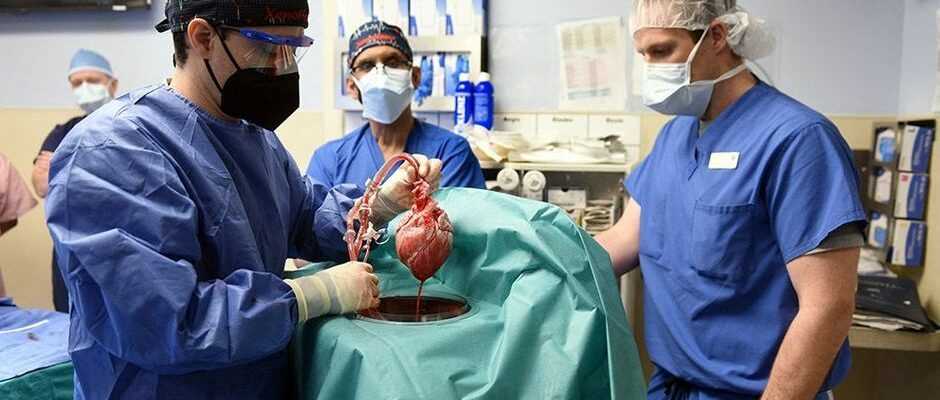The operation showed for the first time that an animal heart could continue to function inside a human without immediate rejection, the institution explained in a press release.
The world’s first patient to receive a heart transplant from a genetically modified pig has died two months after his operation, the hospital where he was treated announced on Wednesday.
David Bennett, 57, died on Tuesday, after his condition “began to deteriorate several days ago,” the University of Maryland Hospital said in a statement. “When it became clear he would not recover, he was given palliative care.”
The operation, carried out on January 7, had raised great hopes, because such xenografts – from an animal to a human – could potentially make it possible to remedy the shortage of organ donations.
“The heart functioned very well for several weeks with no signs of rejection,” the hospital said. After the operation, “the patient was able to spend time with his family and participate in physiotherapy activities to help him regain his strength”.
The researchers therefore consider the experiment a success.
“We have obtained valuable information, and learned that a genetically modified pig heart can function properly inside a human body,” said Muhammad Mohiuddin, scientific director of the hospital’s xenotransplantation program. “We remain optimistic and plan to continue our work in future clinical trials.”
The pig from which the transplanted heart came had been genetically modified in order to avoid an immediate rejection, which indeed did not take place. Without this transplant, David Bennett was doomed. “It was either death or this transplant. I want to live,” he said the day before the operation.
“Until the end, my father wanted to continue to fight for his life and to spend more time with his family,” his son, David Bennett Jr. said in a statement. “We were able to spend precious weeks together when He was recovering from his operation, weeks that we wouldn’t have had without this miraculous effort”.
Read also:Transplantation of 3D printed skin: first clinical trials
On video: medical prowess
“
Any reproduction prohibited
